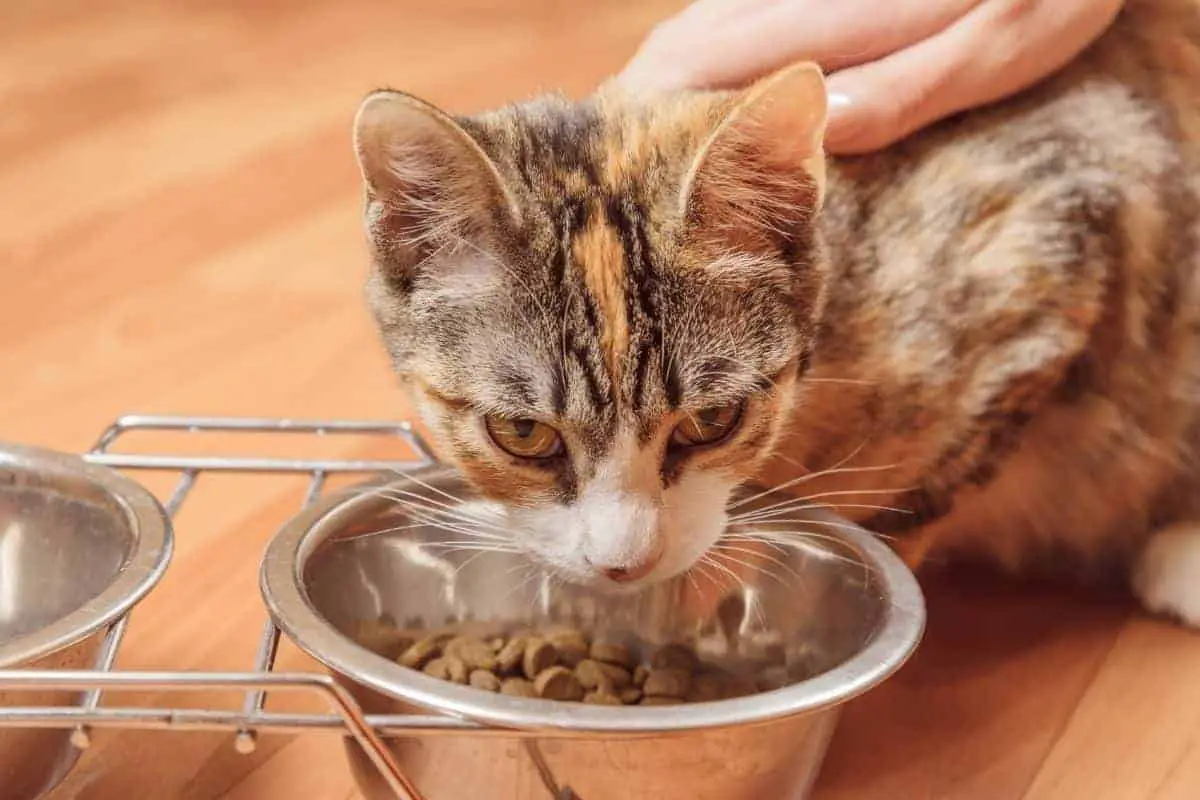Cats have gained a bad reputation for being picky eaters, often turning their noses up at our best attempts of delicious food offerings. It’s their independent, haughty attitudes that have us believing we are no more than their food-providing slaves and that sometimes we are simply not doing a good enough job. But in truth, cats are all individuals, with their own unique personalities and quirks. Your cat’s behavior is based on its nature, history and current environment and it’s not always easy navigating these waters. Understanding why your cat has adopted certain behaviors helps allow for a healthier relationship and a healthier, happier cat.
Your cat might want you around when it eats for security. Domesticated cats are still governed by instinct and in the wild, eating a meal can make an animal vulnerable. They want you to keep an eye out for danger. Other reasons may include habit, or your cat may be an “affection eater”.
Apart from the occasional annoyance of having to watch your cat eat when you have other things to take care of, should you be concerned about your cat’s odd behavior?
Why Do Cats Want You To Watch Them Eating?
It is a fairly common trait displayed by cats to request that their owner watch them eat. It may mean that your cat is only eating when you are around and you may be confused as to why your cat is behaving in this manner. There are a few reasons that could be responsible for this conduct.
Your Cat Only Eats When You Are Around As It Doesn’t Feel Secure
The most common reason a cat will request your presence at mealtimes is that you offer it a sense of security. In the wild, cats are both predator and prey, and their instinctual drive from before they were domesticated is still very strong. This drive means that they can still view mealtimes as potentially dangerous situations.
In nature, an animal is at its most vulnerable when it is feeding. It is distracted and not necessarily as focused on its surroundings and any potential threats. This feeling of vulnerability during meal times may still be part of the genetic makeup of your cat. They, therefore, look to you as their eating time bodyguard to protect them from any unseen danger. In this instance, your cat is looking to you to feel safe and secure.
For some cats, this need to have you watch over them is purely based on instinct, but for others, it may be a remnant of their past or current environment. If you adopted your cat and it comes from a feral background, not only will it be more inclined to rely on instinct, but the past trauma of having to survive and potentially compete for food may play a role in its relationship with food and mealtimes. For example, if your cat became used to more dominant feral cats chasing it from its food, it may now rely on you watching it eat to prevent this from occurring.
If their current environment is in turmoil, this may also be why your cat is looking to you for security. Cats are creatures of habit and if there have been any significant changes such as moving house, your cat may feel out of sorts and insecure. This could cause your cat to seek you out at mealtimes when they feel most vulnerable.
It may also be that another animal in the house is causing them problems. Perhaps the fatter cat is bullying them off their food, or the dog is gobbling everything down before your cat has a chance. This could cause your cat anxiety around eating, which results in them requiring your assistance in watching them eat to make sure they are not losing out to the other house companions.
Your cat’s caution during mealtime could even be from something as simple as the placement of its food bowl. In most homes, this will be up against a wall or in a corner. In order to eat, your cat is required to turn its back on its environment. This situation could be very distressing for your cat as it already feels exposed during meal times and now it is in an even more precarious position where it is unable to observe anything approaching.
Your Cat Only Eats When You Are Around Out Of Habit
Despite their adventurous and independent natures, cats are animals that love routine. When your cat was a kitten, you or its breeder may have watched it eat to ensure it was getting all the nutrition and care needed to grow and be healthy.
Although this may have been a necessary task when it was a kitten, your cat may have become so accustomed to the routine of being watched at mealtimes that as an adult, it still requires your presence. Having you watch is purely a force of habit for your cat and sticking with this same routine allows it to feel confident when eating.
However, it could be that your cat does this out of a bad habit of using it as a way to seek your attention. Your cat may enjoy your company and has learned that not eating results in your hanging around. It could therefore be doing this deliberately to manipulate you into spending more time with it.
Your Cat Only Eats When You Are Around Because It Is An Affection Eater
Affection Eater is the term giving to cats that enjoy the company of their human during meal times. This could be merely having you watch them eat or could even involve you stroking them during feeding. For many cats, this can be a great bonding experience.
This idea of a cat as a social eater is one of the few that goes against their instincts, as cats would not behave in this manner in the wild. But for some domesticate cats having their human dine with them is delightful.
Your Cat Only Eats When You Are Around Because Of FOMO
Yes, even our feline friends can fall victim to fear of missing out (FOMO). Some cats become concerned that they will miss out on some action or an adventure if they take the time to eat away from the hub of the home. To avoid missing out, your cat may insist you be present during its eating so it can be sure you are not off having a ball without it.
Should You Be Concerned If Your Cat Only Eats When You Are Around?
In theory, there is no real harm other than the occasional nuisance of your cat wanting you to watch it eat. In fact, it is a very positive experience for those cats that are affection eaters.
The problem comes in if your cat refuses to eat when you are not around, but you spend large parts of your day away from your home or if you go away for work or vacation. Unlike dogs, if a cat doesn’t eat for as short as 24 hours, it can pose a massive health risk. If cats miss meals, they can develop hepatic lipidosis caused by the conversion of fat into energy and the result is a build-up of fatty acids in the liver, leading to liver failure. They can also develop inflammation in the stomach from their digestive juices. A cat not eating is a serious problem and if your cat has become so accustomed to you watching it eat, you then not being present poses a potentially fatal risk.
How Do You Get Your Cat To Eat When You Are Not Around?
Of course, the solution can’t be that you simply never leave the house. It would be best if you worked to wean your cat off your dinner time gaze.
The first step to try and stop their dependency is to move their food bowl. If you suspect your cat may be concerned with being left out, place the bowl in a busy part of your home. Suppose it appears that your cat is nervous when eating. Look at moving their bowl to an area where they can watch the happenings of their home. Potentially you can look at placing the bowl on an elevated surface such as a cat tree. The height will give your cat a good vantage point to convey the activities of their environment and make them feel safe and secure. It could also remove their food from other competing pets.
Next, you can slowly decrease the time you spend watching them eat, walking away before they have finished. Eventually, your cat will adapt to you not being around. You can also try giving your cat its favorite food or irresistible delights such as pate and then leave the house for a short time. You may find your kitty is simply unable to resist snacking on this delicious treat while you are out.
Conclusion
If your cat only eats when you are around, it is possibly feeling insecure in its environment, displaying habitual behavior, or being an affection eater. To ensure your cat remains healthy, it is best to wean it off having your presence when it eats so that when you cannot be with it, your cat does not land up starving itself.
Sources
- Animalwised: Why Does My Cat Always Want Me to Watch Her Eat?
- Be Chewy: My Cat Won’t Eat Alone
- Catster: Why Does Your Cat Want You to Watch Her Eat? Let’s Talk Affection Eating in Cats
- Cuteness ND: Why Is My Cat Not Eating?
- Vet Street: Strange Eating Habits in Cats — Why Do They Do That?
- Wellness: Deciphering Cat Body Language Around Food




